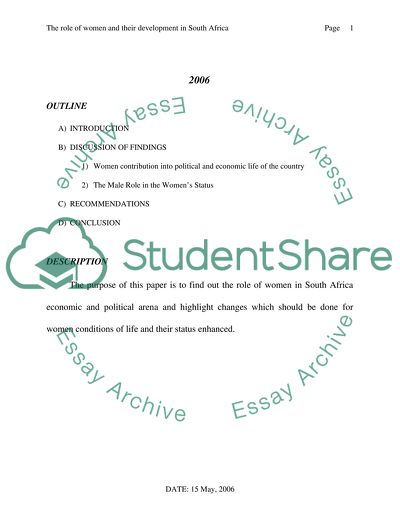Cite this document
(“The Role of Women and Their Development in South Africa Essay”, n.d.)
Retrieved from https://studentshare.org/social-science/1536914-the-role-of-women-and-their-development-in-south-africa
Retrieved from https://studentshare.org/social-science/1536914-the-role-of-women-and-their-development-in-south-africa
(The Role of Women and Their Development in South Africa Essay)
https://studentshare.org/social-science/1536914-the-role-of-women-and-their-development-in-south-africa.
https://studentshare.org/social-science/1536914-the-role-of-women-and-their-development-in-south-africa.
“The Role of Women and Their Development in South Africa Essay”, n.d. https://studentshare.org/social-science/1536914-the-role-of-women-and-their-development-in-south-africa.


